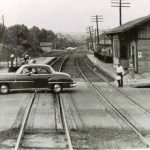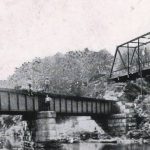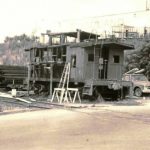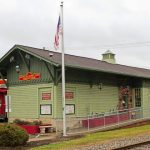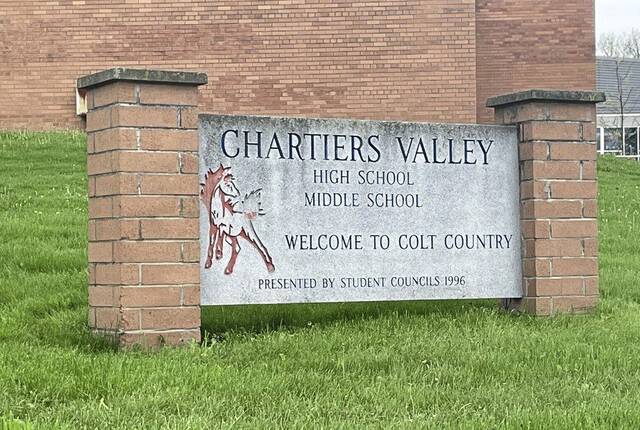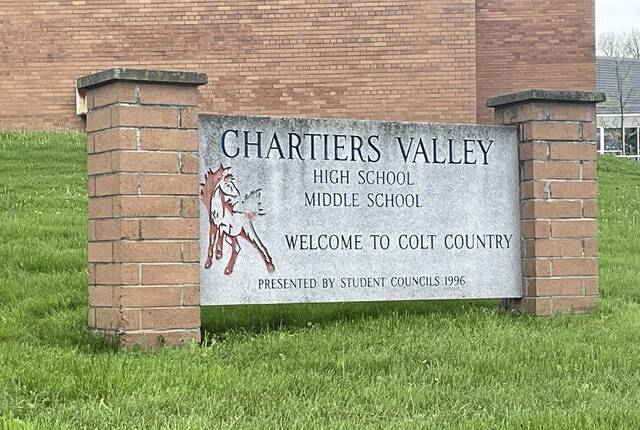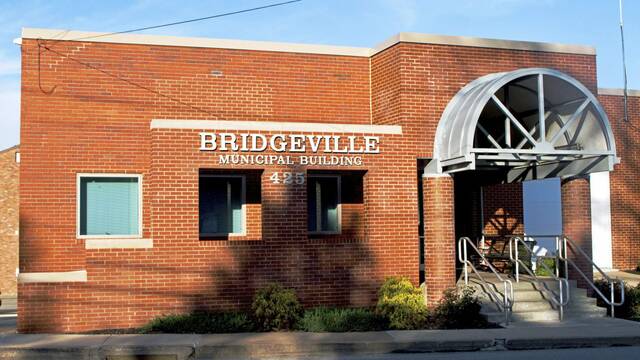Editor’s note: This article is the second of two parts.
On Oct. 1, 1908, Henry Ford introduced his Model T as the first mass-produced “everyman’s car.”
By 1931, the year historian John Oyler was born, Ford Motor Co. had sold more than 19 million units of the Tin Lizzie and successor Model A. Meanwhile, totals from other manufacturers contributed exponentially to the number of Americans behind the wheels of vehicles.
And with that came the downward spiral for an American institution, as Oyler discussed in a recent presentation, “Early Railroads in the Chartiers Valley,” for the Bridgeville Area Historical Society.
For example, a trio of bridges at the foot of Vanadium Road on the Collier-Scott line once carried the traffic of three different lines: the Wabash Pittsburgh Terminal Railway; the Pittsburgh, Chartiers & Youghiogheny Railroad; and the Chartiers Branch of the Pennsylvania Railroad. The latter ran from Carnegie to Washington, Oyler said, “and had its own other little branches.”
In 1952, the Pennsylvania terminated passenger service on the Chartiers Branch and reduced the line to a single track.
“Between the buses and automobiles, passenger traffic declined so much,” Oyler explained. “Eventually, the railroad went bankrupt, at the same time the New York Central did. They formed the Penn Central, which was really beyond helpful. And it didn’t do very well, either.”
As a matter of fact, the Penn Central Transportation Co. declared bankruptcy in 1970, just two years after the merger of the Pennsylvania and New York Central railroads.
Despite the difficulties, the onetime Chartiers Branch actually still is in use. In 1996, transportation holding company RailTex bought the line and established the Pittsburgh Industrial Railroad.
Six years later, Bridgeville gained a measure of fame when NBC filmed an episode of “The West Wing” in the vicinity of the former railroad depot at Railroad and Station streets, which served as the borough’s public library at the time and now is home to the Bridgeville Area Historical Society.
“We picked this spot because Bridgeville has a very unused railroad track and it was very easy to basically buy the track and the six-car train for a day,” Steve Hough, assistant location manager for Warner Brothers, told the Tribune-Review at the time.
Today, the tracks at the site are owned by Genesee & Wyoming Railroad Services Inc. as part of the short-line Pittsburgh & Ohio Central Railroad, which runs 38 miles from Neville Island to Chartiers Township in Washington County.
As for the onetime Wabash Pittsburgh Terminal Railway, it went into receivership as early as 1908 and was sold at foreclosure eight years later. It subsequently reorganized as the Pittsburgh & West Virginia Railway and was acquired in 1929 by PennRoad Corp., a holding company owned by the Pennsylvania Railroad.
In 1990, Oyler said, the Wheeling Acquisition Corp. was formed by private investors to take over most of the former Wheeling & Lake Erie Railway Co. and the lease for the Pittsburgh & West Virginia Railway.
“And that’s what’s in existence now,” he said. “That’s a pretty decent railroad.”
According to the Wheeling & Lake Erie website, the company operates 840 miles of railroad track in Ohio, West Virginia, Pennsylvania and Maryland, moving nearly 140,000 freight carloads per year. Locally, the line passes through Scott along Chartiers Creek and crosses Washington Avenue, Murray Avenue and Hickman Street in Bridgeville.
“I live about halfway between Heidelberg and Castle Shannon, and I hear the horns in both directions,” Oyler said. “I love it.”
For more information about the Bridgeville Area Historical Society, visit bridgevillehistory.org.











